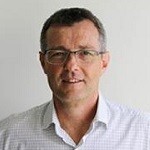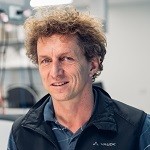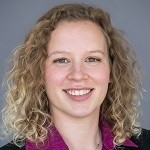About the Editors
Editor-in-Chief
 Daniel Rodriguez, PhD
Daniel Rodriguez, PhD
Centre for Crop Sciences, Queensland Alliance for Agriculture and Food Innovation, The University of Queensland, Australia
I have a background in Sustainable Agrifood Systems. I have achieved National and International leadership in the development of integrative agricultural system analyses to support decision making in highly variable and changing climates. In my work I strive to inform crop designs that are more profitable and less risky; and farming system designs that are better able to manage the trade-offs between the multiple functions of agriculture i.e., food and fibre production, economic activity, environmental sustainability, social development, and human capacity. My projects are often carried out in multidisciplinary teams with the participation of multiple stakeholders e.g. farmers, private consultants, agribusinesses, policy. In my work, I contribute to and collaborate in research that addresses multiple of the SDGs applying quantitative systems research approaches to support decision-making at the crop, farm, and community levels. This requires answering questions such as: Why do complex problems emerge and persist? and What are the drivers, and likely pressure points that when pushed can positively change productivity, economic, environmental, and social outcomes? Impacts from my work translate in improved food security and poverty alleviation in the developing world, and increased profitability and sustainability of agriculture.
Associate Editor

AGRA (Sustainably Growing Africa's Food Systems), Addis Ababa, Ethiopia
Dr. Tilahun Amede is currently the Head of Climate, Resilience, Soil health and Extension at AGRA, engaged in developing and institutionalizing an integrated programme ‘Sustainable farming’, which is designed to concomitantly address food security, resilience of small scale farming and improving ecosystem services in the African continent. Before joining AGRA Tilahun worked for the CGIAR system as a Principal Scientist developing, promoting and facilitating landscape-based soil fertility management models and approaches, farming system-based niche identification tools, and dryland technologies and practices in small scale settings of Eastern and Southern Africa for the last 20+ years, with particular focus on Ethiopia, Kenya, Tanzania, Uganda and Mozambique. He published widely in high impact journals in sustainability, agronomy, soil fertility, drought physiology, legume intensification, biofortification and integrated watershed management.
 Ann Bybee-Finley, PhD
Ann Bybee-Finley, PhD
USDA-ARS, Denver, CO
Dr. Ann Bybee-Finley is currently a Research Agroecologist at the Agricultural Research Center at the United States Department of Agriculture and a Visiting Assistant Professor at the Korbel School of International Studies at the University of Denver. Her research focuses primarily on crop diversification as a strategy to enhance the resilience of cropping systems in the face of extreme weather events. With expertise in designing field experiments, conducting multi-site comparisons, and incorporating human dimension using qualitative mixed methods, her work can be described as 1) advancing the science and practice of crop diversification, 2) understanding the effects of diversification on ecosystem services, and 3) contextualizing diversification practices within the broader social and economic agricultural system.
 Santiago Dogliotti, PhD
Santiago Dogliotti, PhD
My research area is analysing and designing agricultural production systems. I conducted several research projects on the diagnosis of sustainability and re-design of small-scale, family farm systems, combining simulation modelling at the field and farm level with innovation processes in pilot farms. I'm currently leading projects in the ecological intensification of vegetables and grassland-based beef production systems applying a coinnovation approach.
 Walter Rossing, PhD
Walter Rossing, PhDWageningen University and Research, Farming Systems Ecology, The Netherlands
Walter Rossing has an interest in transdisciplinary scientific approaches applied to systemic agricultural change. He combines concepts from innovation and transition sciences with those of systems agronomy using qualitative and quantitative methods. He has worked extensively with organic and agroecological innovators in science and society in Europe and Latin America.
 Clemens Scheer, PhD
Clemens Scheer, PhD
Karlsruhe Institute of Technology, Garmisch-Partenkirchen, Germany
Clemens Scheer is leading the research group on ‘Landscape Fluxes’ and the project group ‘Environmental Smart Agriculture’ at the Karlsruhe Institute of Technology, Germany. He received a PhD in Agricultural Sciences from the University of Bonn in 2008. From 2009-2019 he worked as researcher in the Sustainable Agriculture program at the Queensland University of Technology in Brisbane, Australia. His research investigates the impact of agricultural production on the environment and climate, with a focus on promoting sustainable and environmentally friendly production of food, energy, and bio-based products.
 Hannah Schneider, PhD
Hannah Schneider, PhD
University of Göttingen, Göttingen, Germany
Hannah Schneider is a group leader at the Leibniz Institute of Plant Genetics and Crop Plant Research (IPK) and a Professor of Root Sciences at the University of Göttingen in Germany. Her work focuses on phenotyping, physiology, and genetic control of root anatomical and architectural traits. Her research aims to leverage high-throughput phenotyping to create knowledge about plant function at the physiological level and use forward genetics approaches to unravel the genetic architecture of root traits. The overall goal is to understand the function and genetic control of root traits in specific environments with the aim of enhancing soil resource capture and plant performance.

Advisory Editor

Pilar Morera Margarit, PhD
Pilar joined Nature Communications in February 2021 where she handles manuscripts in Agroecology. Pilar graduated in Biology at the University of Valencia and continued her education by enrolling into the Green Life Sciences MSc at the University of Amsterdam. Here she had the opportunity to work at the Plant physiology department and to carry on an internship at the Federal University of Viçosa. Following this, Pilar obtained a PhD to investigate insect microbiota at Harper Adams University and The James Hutton Institute in Dundee. She focused on unravelling the role of bacteria associated with the vine weevil, a widespread insect pest, for its pest status and control.
 Yang Xia, PhD
Yang Xia, PhD
Senior Editor, Economics, Social Sciences, Shanghai
Yang has a BSc in Economics at University of Leeds; a MSc in Ecological Economics at University of Leeds and a PhD in Ecological Economics at University of East Anglia, The United Kingdom. She currently serves as the Economics and Social Science editor at Nature, where her areas of responsibility include: socio-economics, climate policy, climate risk, environmental policy, sustainability and society.
Editorial Board Members
Rachel Bezner Kerr, PhD
Cornell University, Ithaca, NY, USA
Riti Chatterjee, PhD
Indian Institute of Technology Kanpur,Uttar Pradesh, India
John Dixon
The University of Queensland, Australia
Fernanda Dreccer, PhD
Commonwealth Scientific and Industrial Research Organisation, St Lucia, Brisbane, Australia
Fiorella Paola Eduardo Palomino, PhD
Southern Illinois University Carbondale,Carbondale, IL, USA
Pablo Gregorini, BAgSc, MSc, PhD, SAP, PAS, CFPG, Dipl ACAS, ACAAB, ACAN
Lincoln University, Christchruch, NZ
Matthew Harrison, PhD, BEng, BAppSci, BSci
Tasmanian Institute of Agriculture, University of Tasmania, Launceston, Tasmania, Australia
Xiaobin Jin, PhD,
Nanjing University,Nanjing, China
Ke Liu, PhD
University of Tasmania,Launceston, Tasmania, Australia
John M. Lynch, PhD
University of Oxford,Oxford,UK
Žiga Malek, PhD
Institute for Environmental Studies (IVM), Vrije Universiteit Amsterdam,Amsterdam, Netherlands
D. K. Meena, PhD
ICAR-Central Inland Fisheries Research Institute, Kolkata, India
Walter Mupangwa, PhD
Marondera University of Agricultural Sciences and Technology, Marondera, Zimbabwe
Georgia Ntatsi, PhD
Laboratory of Vegetable Production, Department of Crop Science, Agricultural University of Athens, Greece
Edel Pérez-López, PhD
Départment de phytologie, Faculté des sciences de l'agriculture et de l'alimentation, Université Laval; Centre de recherche et d’innovation sur les végétaux (CRIV), Université Laval; Institute de Biologie Intégrative et des Systèmes (IBIS), Université Laval, Québec City, QC, Canada
Vijay Ramprasad, PhD
Center for Ecology Development and Research, Dehradun, UK, India
Abdul Rehman, PhD
College of Economics and Management, Henan Agricultural University,Zhengzhou, Henan,China
Sieglinde Snapp, PhD
CIMMYT, El Batan, Mexico
Youhong Song, PhD
Anhui Agricultural University, School of Agronomy, Hefei, China
Christinavimala Supramaniam, PhD
University of Greenwich, Medway Campus, Chatham, UK
SM Ullah, PhD
Assistant Professor, Department of Environmental Design, Kyushu University, Fukuoka, Japan
Yunxi Wu, PhD
Center for Southeast Asian Studies,Kyoto, Japan
Dianming Wu, PhD
East China Normal University, Shanghai, China
Wei Wu, PhD
School of Breeding and Multiplication, Hainan University, Sanya, China
Sudhir Yadav, PhD
The University of Queensland, Australia
Fengqi You, PhD
Cornell University, Cornell Institute for Digital Agriculture,Ithaca, New York, USA
Interested in joining the journal team?
If you are interested in joining the journal as an Editorial Board Member or Associate Editor, please complete this Google form. Associate Editors are part of the editorial team that handle manuscripts, while Editorial Board Members are regular reviewers and are consulted for ad hoc advice. We will contact you if your expertise meets the needs of the journal.
Nature Portfolio journals are committed to promoting practices that support diversity, equity and inclusion in science communication and publishing, and we strongly encourage gender, race, ethnic, geographic, career stage and other diversity in our journal teams. Our in-house staff will use your information only for the purposes of identifying new editorial team or board members. Please contact the journal by email if you would like to remove your information from these records.
Please note that we are not able to respond to all applicants.
